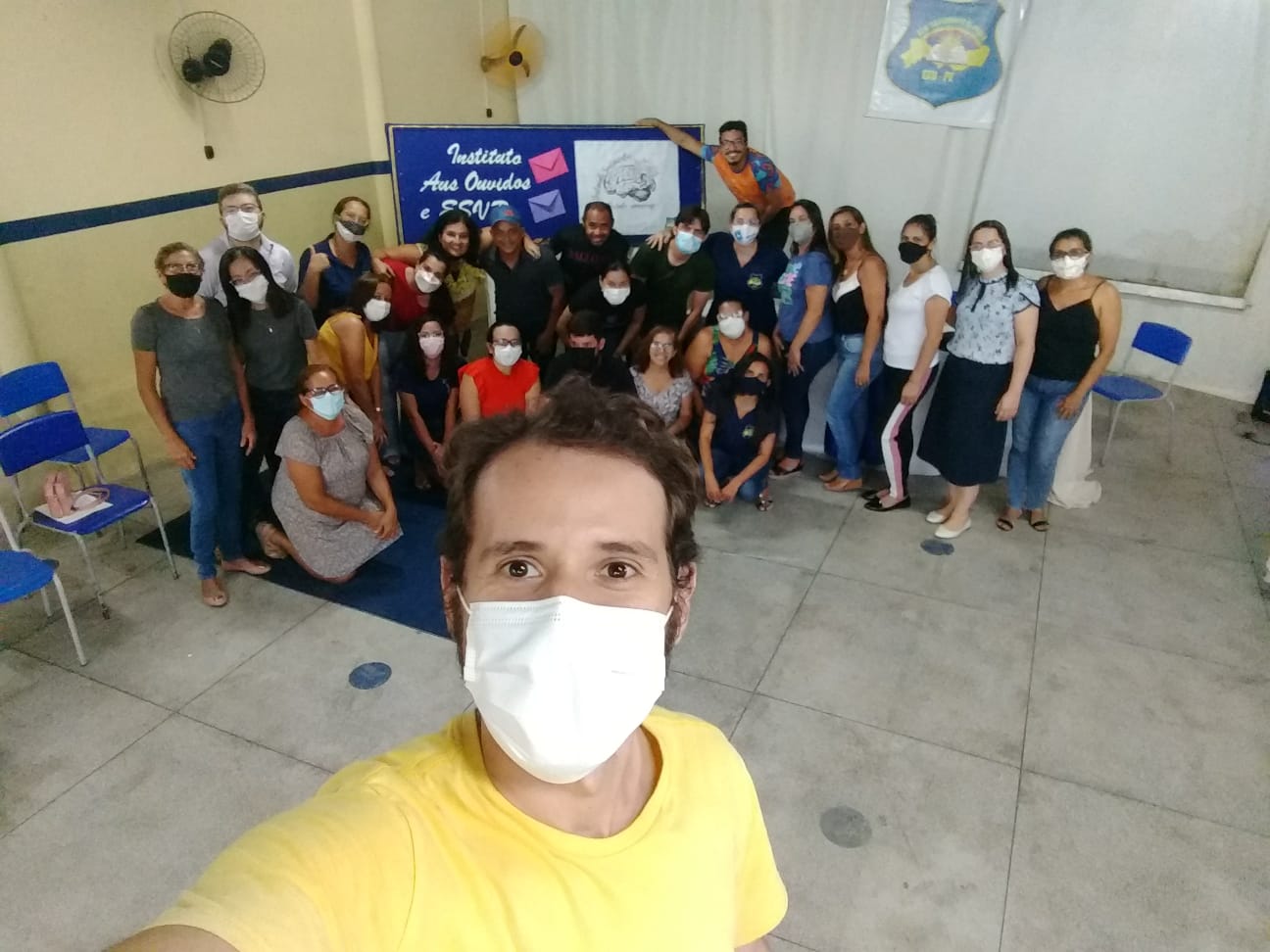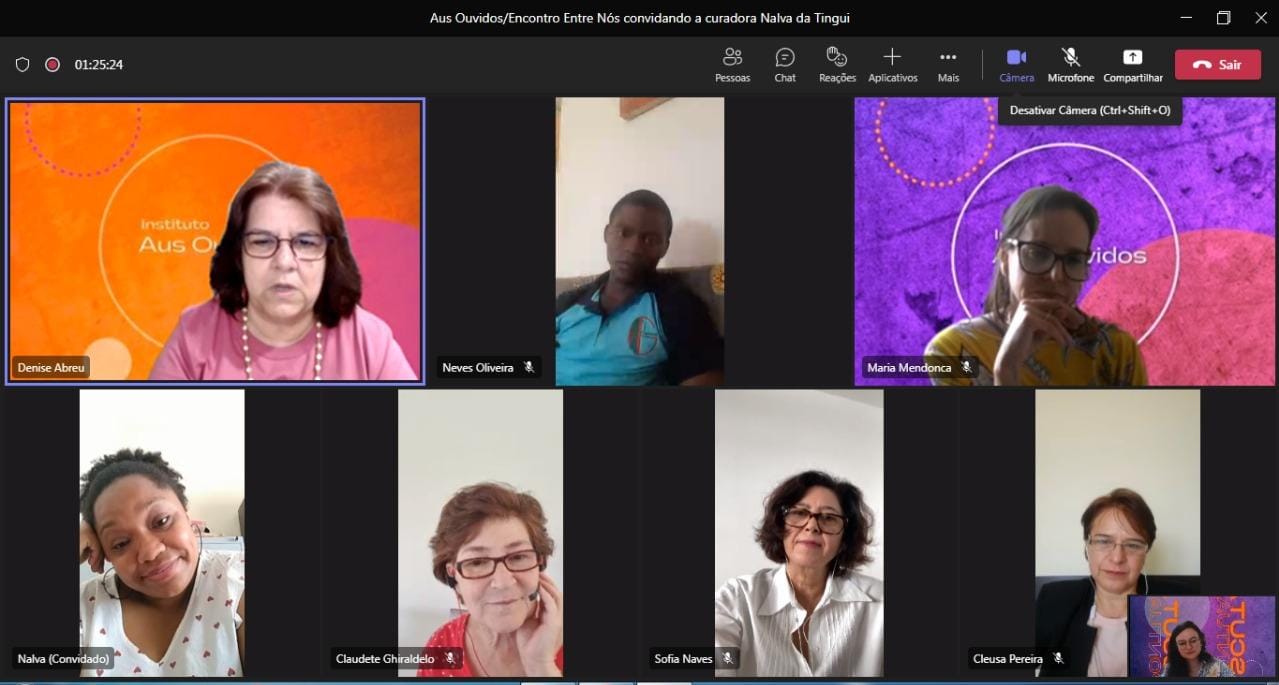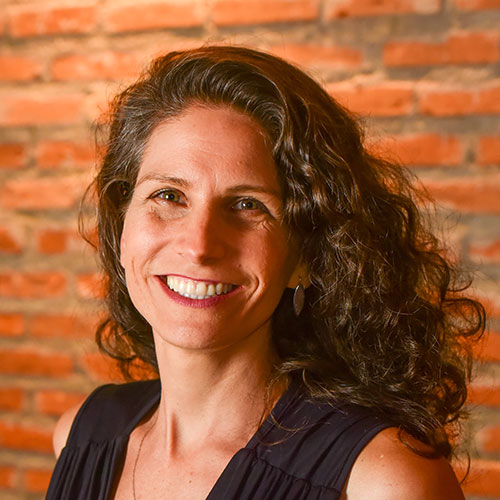Aus Ouvidos Institute promotes mental health with free online psychological listening
Support is available for collectives, projects, associations and business groups.


“Taking the essence of professional listening out of the office”. This is the objective of Instituto Aus Ouvidos, created by psychologist Denise Abreu and software engineer Heber Lopes. With one-off sessions, professional listening is done free of charge through an online platform. The idea is to promote mental health.
The method of professional listening, says Denise, was inspired by her own path as a psychologist. Years ago, in 2018, she and her nephew Rodrigo de Abreu, a clown, started working on aspects of mental health through meetings at CRAS and CREAS in the Vale do Paraíba region, in the interior of São Paulo. The meetings took place in conversation circles, where specific themes were discussed through playful activities.
The artistic interventions proved to be valuable tools by allowing a greater connection with those who needed assistance: “People could interact and at the same time realise the importance of listening. In particular, they could deconstruct the notion that a psychologist only works with issues related to illnesses, pathologies or those linked to diagnoses and referrals”, says Denise.
With the pandemic, however, face-to-face meetings had to be stopped. Faced with that unexpected and heartbreaking context, Denise imagined a type of professional listening that would offer acceptance and timely relief, as an alternative to brief therapy or another type of longer therapeutic follow-up.
“People in the health area were living with and absorbing the impact of COVID-19, without any guarantees, living with that imminence of death, so it was a sector that did not have time to elaborate on all this because they had to work”, he recalls. up Denise. It was at that moment that she had the idea of professional listening.

The impact of the pandemic on mental health
Every therapeutic process is made up of a series of meetings, explains Denise. Each encounter, however, is unique. And in the pandemic, this became evident: “We never had a guarantee of the future. With the pandemic, however, this assumption was in fact realized. It was very difficult because one day I was helping someone and the next, that someone no longer existed… ”, she recalls.
Questions about how to deal with grief, isolation, the mask issue, home office work and online school were central to thinking about a differentiated therapeutic approach during the period, through professional listening.
“With the pandemic, everyone was impacted, with countless consequences that are appearing to this day. Even the issue of time acceleration… when you talk to people about the pandemic, it seems like it went so far, doesn’t it?”, ponders the psychologist.
The process of psychological listening
According to Denise, professional listening was a way of subverting her own work as a psychologist, because when she undergoes an analysis process, within psychotherapy, she gradually gets to know the person. “And suddenly I had to recreate spaces. From there came the essence of what listening is, what a date is, ”she says.
“In punctual listening, I don’t know who I’m going to listen to, so I don’t have a preview, there’s no way to do anamnesis, say for example ‘ah, next week we start, so let’s build this service’. It is the here and now. And that forces me to listen to the person in the best and greatest possible essence of what the verb to listen is”, explains the psychologist.
On the other hand, Denise, the person requesting to be listened to, is often talking about the subject for the first time with someone different from her acquaintance. “And when that person asks to be listened to, he tells stories, memories… to the extent that the person has the experience of talking a little about himself, he is essentially talking about something that touches him. She hears herself talking, this is the point”.
Thus, during the listening, it is possible to deal with any subject. Each session lasts 60 minutes. Listening is done individually, by a team of professionals who serve on a voluntary basis. The service, however, is not of an emergency nature. Only listenings scheduled at least one hour in advance can be scheduled.


Online and free service
The Aus Ouvidos Institute works as a free online listening platform that serves all regions of the country. To access the service, you must be part of a collective, project, association or business group. The organization registers on the website and then has access released to the members of that specific group.
“Listening is not consumption”, warns Denise. In this way, each of the organizations registered on the platform elects a representative of the group to be the curator of the listening. This person will be responsible for intermediating between Instituto Aus Ouvidos and the group members.
The role of the curator is important because he brings information about the institute to the group, tells the story of Aus Ouvidos and talks about the essence of listening. It is not a screening process, nor an experimental follow-up process: “We are not offering listening through a survey that lasts only a few months”, explains Denise.
Thus, although the consultations are expected to take place during a pre-established period with a certain group, the listening offered by the platform is constant.
Collective action
For Denise, listening should be seen as a transforming action within the group. Therefore, it is not possible to request the listening independently. If a person found out about the service and wants to listen, he must first be included in a group and then request registration.
Groups do not need to be formalized through a CNPJ. It is possible to request assistance for informal groups. After registering the group, therefore, the person can access the specific listenings as many times as he/she wants. “Listening leads people to have contact with something very punctual about them, that’s why they don’t make it a consumption, but a reflection, as a point of support, an awakening”, she says.
In the three years of operation, the institute has already served NGOs such as Teto and Fundação Amazônia Sustentável, passing through collectives from Maré, in Rio de Janeiro, groups of lacemakers in Carapicuíba, even groups of teachers in the interior of Pernambuco, Escola Livre de Teatro de Santo Andre etc.
Want to support this cause?
Visit the Aus Ouvidos Institute platform.
Follow them on Linkedin, Instagram and Facebook.
To learn more, contact denise.abreu@ausouvidos.com.br



